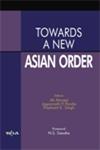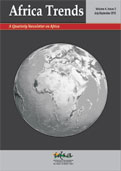Reconciling Doctrines: Prerequisite for Peace in South Asia
This paper suggests an approach towards building conditions necessary for peace between India and Pakistan. Identifying the Pakistani army as a power centre in Pakistan, the hypothesis is that a strategic dialogue with it would achieve doctrinal balancing and help mitigate its threat perception.
- Ali Ahmed |
- 2010 |










